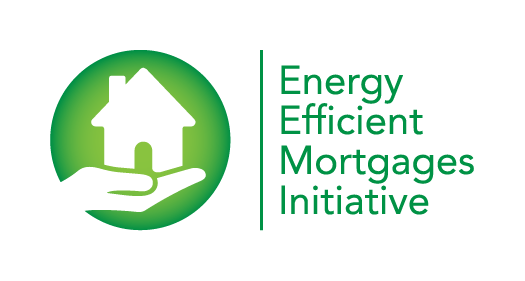

By Vincent Mahieu, Senior Associate, Hypoport
In the second week of June 2018 we saw a successful launch of the Energy Efficient Mortgages Pilot Scheme (in collaboration with 37 European banks, 23 supporting organisations and EU and international political institutions). The EeMAP and EeDaPP are part of the Energy Efficient Mortgages Initiative that aims to create a standardised Energy Efficient Mortgage framework to incentivize building owners to improve the energy efficiency of their buildings or acquire an already energy efficient property by way of preferential financing conditions linked to the mortgage. For those who are new to the concept: the idea is that the Energy Efficient Mortgage utilises the concept that energy savings have a risk mitigation effect for both banks and the borrower: allowing consumers to benefit from the improved collateral value and the lower energy costs, potentially contributing to lower risk on the balance sheet for banks resulting in potentially favourable capital treatment.
The Energy Efficient Data Protocol and Portal (EeDaPP) Initiative
There has been an increased issuance of green (covered) bonds & notes in recent years. Although we greatly applaud this development, we typically see that the guidelines adhere to the liability structure of an issuance or to the ‘use of proceeds’. The last two years we have seen the first issuance(s) of green residential mortgage-backed securities (RMBS) and covered bonds. There is however a lack of standardisation when it comes to the definition of green assets on a European scale. To this end the European Mortgage Federation – European Covered Bond Council (EMF-ECBC), together with European DataWarehouse, Ca’ Foscari University, Goethe University Frankfur, CRIF, TXS and Hypoport has launched a market-led initiative to address the current lack of standardisation in terms of datasets by delivering a framework for standardisation of technical and financial data gathering: The Energy Efficient Data Protocol and Portal (EeDaPP) Initiative.
Building and working with the outcomes of the Energy Efficient Mortgages Pilot Scheme, EeDaPP aims to design the first European framework that focusses on capturing quantitative data on an asset-level: allowing for in depth analysis across transactions, originators and jurisdictions on both performance and data quality.

Mortgage lending is a very data driven venture. The overall market has benefited greatly from the disclosure initiatives introduced in the last couple of years by the European Central Bank with the RMBS loan level data template) and the EMF-ECBC with the establishment of the Covered Bond Label and the underlying National and Harmonised Transparency Template (NTT&HTT). The more widespread public availability of loan level data and standardised (investor) reports is a clear example of transparency and a push for more due diligence by market participants. Likewise, the Bank of England and Prime Collateralised Securities (PCS) have contributed to the establishment of standardised data templates and data requirements on their side. Managing a mortgage portfolio is affected by an abundance of reporting, disclosure, audit and retention rules affecting the reporting process. From Hypoport’s perspective we often see pitfalls here: 1) overlapping disclosure requirements and 2) supervision by multiple (national and supra-national) regulators. The increase in regulation can potentially result in inconsistent disclosure requirements and increased costs. The EeDaPP Initiative will therefore perform a comprehensive analysis on the current state of the available and forthcoming voluntary and involuntary mortgage reporting initiatives will be undertaken.
Integrating different data sources and definitions into one system, handling and administrating large quantities of data from various source systems can and will offer a challenge. Therefore, it is important that we define a clear template, instructions and validation rules for the delivery of energy efficient data towards the Portal. Next to this it is important that the scope (types of transactions e.g.: RMBS, Covered Bonds, Retained vs Non-Retained, Public vs Non-Public) should be well defined in terms of expectations and (technical) standards.
The EeDaPP Initiative has a unique chance to tap from new and growing green investor mandates, by providing and making tangible the actual ‘green performance’ of assets over time. Explicitly we aim to establish a framework that is scalable and flexible. We strive to enhance the trust and transparency of market participants in Energy Efficient Mortgages from both an originating, funding and public perspective. To this end we will establish a pragmatic approach, minimising potentially perceived burden on a data logistical side. Therefore, we look forward in working in close collaboration with a growing number of market participants. Likewise, we see that forthcoming regulation increasingly acknowledges energy consumption as an important factor. For instance, the Simple, Transparant and Standardised (STS) reporting template drafted by the European Securities and Markets Authority (ESMA) and the European Banking Authority (EBA) provides increased and interesting momentum in aligning forthcoming energy efficiency related data fields.
We see that Covered Bond and RMBS investors and regulators demand coherent and adequate reporting. The EeDaPP has the explicit aim to build on and complement existing and forthcoming initiatives in the current European mortgage reporting space. The market can expect the establishment of a concrete Energy Efficient Mortgage reporting template in line with forthcoming STS and CB reporting guidelines.
To ensure we have a solid framework for data quality we are currently analysing best practices in data gathering, extraction and handling. In this respect we can draw upon the experience of European DataWarehouse and EMF-ECBC from a report repository side. On the other hand, with the experience of TXS, CRIF and Hypoport we can assess the ability from mortgage issuers and servicers to comply with providing Energy Efficient data handling. Likewise, the Ca’ Foscari University’s ability to interpret and explain the relevance of energy efficient data, provides a stepping stone to set out and negotiate future policy favourable towards Energy Efficient Mortgages on a European scale.
Sitemap
Copyright © Energy Efficient Mortgages Initiative


The project DeliverEEM has received funding from the European Union’s LIFE 2023 programme under grant agreement No.101167431. The EeMAP, EeDaPP, EeMMIP projects have received funding from the European Union’s Horizon 2020 research and innovation programme under grant agreements No. 746205, No. 784979 and No. 894117 respectively
Privacy Overview
| Cookie | Duration | Description |
|---|---|---|
| cookielawinfo-checkbox-analytics | 11 months | This cookie is set by GDPR Cookie Consent plugin. The cookie is used to store the user consent for the cookies in the category "Analytics". |
| cookielawinfo-checkbox-functional | 11 months | The cookie is set by GDPR cookie consent to record the user consent for the cookies in the category "Functional". |
| cookielawinfo-checkbox-necessary | 11 months | This cookie is set by GDPR Cookie Consent plugin. The cookies is used to store the user consent for the cookies in the category "Necessary". |
| cookielawinfo-checkbox-others | 11 months | This cookie is set by GDPR Cookie Consent plugin. The cookie is used to store the user consent for the cookies in the category "Other. |
| cookielawinfo-checkbox-performance | 11 months | This cookie is set by GDPR Cookie Consent plugin. The cookie is used to store the user consent for the cookies in the category "Performance". |
| viewed_cookie_policy | 11 months | The cookie is set by the GDPR Cookie Consent plugin and is used to store whether or not user has consented to the use of cookies. It does not store any personal data. |

